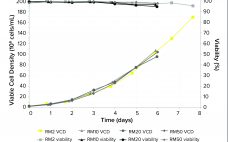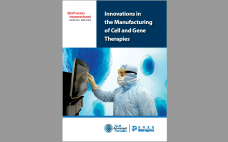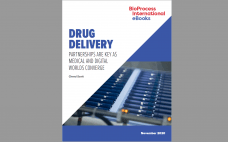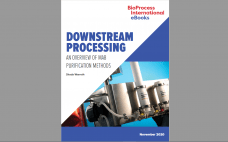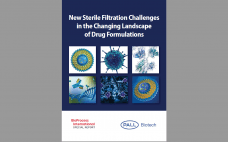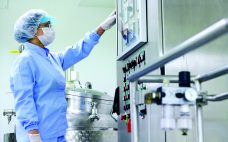The high costs of and limits on global accessibility of biologics such as monoclonal antibodies (MAbs) are focusing the biopharmaceutical industry’s attention on strategies for rapid, economical development of such therapies. Process intensification is one approach to help shorten manufacturing timelines and reduce cost of goods (CoG) (1, 2). Today, process intensification in upstream cell culture enables biologics manufacturing in facilities with smaller footprints and lower scale-up volumes than was possible before. Intensified processing of Chinese hamster ovary (CHO) clones…
2020
Cryopreserved Leukapheresis Materials Help Alleviate Donor Sourcing Issues
Reliable access to high-quality starting material is a primary challenge in cell therapy manufacturing. Freshly isolated leukopak starting materials depend on donor availability and are vulnerable to cell losses from scheduling changes and other unforeseen circumstances. Flexibility often is required for cell therapy manufacturing. Therefore, relying solely on freshly isolated starting material is impractical, particularly when cell therapy logistics involve global shipping and distribution. Donor sourcing is among the most critical factors shaping cell and gene therapy (CGT) supply chains.…
Innovations in the Manufacturing of Cell and Gene Therapies
Advancements in next-generation cell and gene therapies are fulfilling the promise of personalized medicine and attempting to cure and heal patients. Multiple approved products have been launched in global markets and the number of clinical trials continues to grow. Developing innovative advanced therapies is one of the biopharmaceutical industry’s greatest opportunities to dramatically improve patients’ lives. WuXi Advanced Therapies is a contract testing, development, and manufacturing organization (CTDMO) that has launched several innovative world-class platforms. It offers integrated platforms to…
eBook: Drug Delivery —
Partnerships Are Key As Medical and Digital Worlds Converge
Drug delivery is advancing into a digital future. Information technology is changing aspects of every operation in the biopharmaceutical industry. Meanwhile, machine learning and cloud computing are not only finding their way into drug development, manufacturing, and distribution, but also into drug-product delivery devices themselves. As a result, many biopharmaceutical companies are seeking medical device expertise through strategic alliances and contract services. New delivery devices can help big companies extend patent protection on established marketed products, for example, and provide…
eBook: Downstream Processing — An Overview of MAb Purification Methods
The downstream harvest, clarification, and purification operations of biologics are essential steps to ensure drug product safety. However, these process steps can be problematic for complex biologics. Compared with processes for traditional small-molecule pharmaceuticals, downstream methods for monoclonal antibodies (MAbs) have higher risks of contamination. Thus, different centrifugation, filtration, chromatography technology and viral clearance/inactivation strategies must be applied to remove dead cells, host-cell proteins, viruses, and other contaminants. Several factors must be considered to determine which methods and technologies are…
Ultracentrifugation for Recombinant Adenoassociated Virus Therapies
Quantitation of different capsid species in viral-vector gene-delivery drugs, including recombinant adenoassociated virus (AAV) therapies, is essential for proper assessment of critical quality attributes before regulatory approval and during commercial production. If rAAV full-capsid percentages are maximized, and variants such as empty or partially-filled capsids are reduced as much as possible, then potency is increased for improved dosing and tolerance outcomes. Traditionally, characterization of AAV purity with respect to empty, full, and other variants has been performed by techniques such…
Drug Formulations Are Changing:
New Sterile Filtration Challenges in the Changing Landscape of Drug Formulations
Read about the challenges of sterile filtration of high concentration mAbs, liposomes, and lentiviral vectors, and how to solve them in this Special Report. Development of new, complex drug formulations has given us therapeutics with properties that are markedly different from traditional drug types. High viscosity or low surface tension formulations or large viral vector molecules can mean that sterile filtration processes, which are optimized for traditional drug types, are not as efficient for the new, complex formulations. Premature filter…
Making MAbs: Bioprocess Advancements Challenge Platform Assumptions
Still the largest sector of the industry, monoclonal antibodies (MAbs) have dominated the biopharmaceutical stage for over 30 years. Some observers might think there’s nothing new to say about these molecules; others point to antibody derivatives as a more exciting alternative. But MAbs are far from an outdated technology. From biosimilar developments to cell-free synthesis to yeast display, immunogenicity improvements, and fully human antibodies — as well as improvements in process efficiency and cost reductions, as discussed herein — the…
The Therapeutic Monoclonal Antibody Product Market
Commercial development of therapeutic monoclonal antibodies (MAbs) began in the early 1980s, and by 1986 the first MAb product had been approved in the United States: muromonab-CD3 (trade name Orthoclone OKT3, marketed by Janssen-Cilag) for prevention of kidney-transplant rejection. Since its approval, therapeutic MAbs and antibody-related products such as Fc-fusion proteins, antibody fragments, and antibody–drug conjugates (collectively referred to herein as “MAb products”) have grown to become the dominant product class within the biopharmaceutical market. They have been approved for…
Tracking Therapeutic Antibody Development in a Pandemic
The COVID-19 pandemic has generated a significant and rapid response from scientists who aim to develop drugs and vaccines in the academic, government, and industrial sectors. Such interventions are essential to containing SARS-CoV-2, the coronavirus that causes the COVID-19 disease. To inform and educate the public about global efforts to develop targeted therapies such as monoclonal antibodies (MAbs), The Antibody Society (TAS) and the Chinese Antibody Society (CAS) have designed and implemented a freely available online database called the COVID-19…

